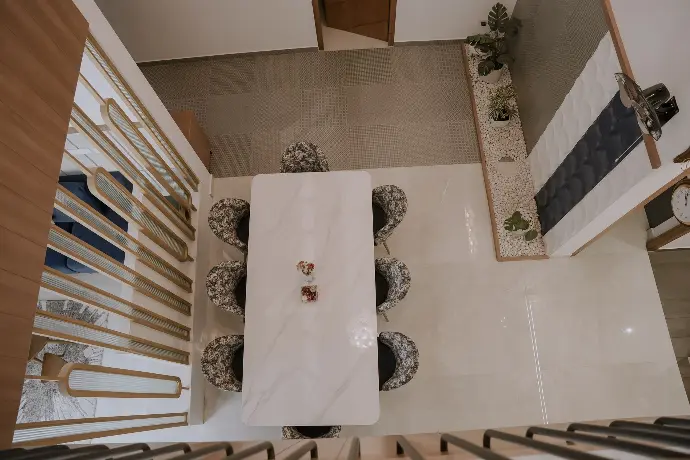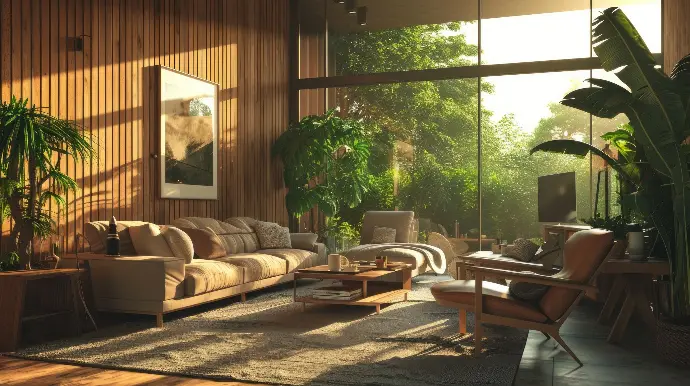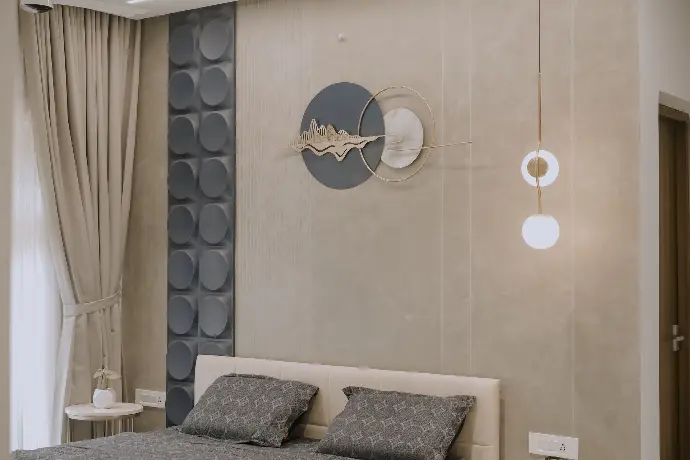How To Make Interior More Attractive
Introduction
Modern interior design is all about clean lines, minimalism, and functionality. It seamlessly blends contemporary aesthetics with practical design to create stylish and comfortable living spaces. Whether you're redesigning your home or working with interior designer in Malappuram, understanding the key principles of modern interior design can help you achieve a timeless and elegant look.



Key Principles of Modern Interior Design
1. Minimalism: Less is More
Modern design embraces simplicity by removing unnecessary clutter and focusing on essential elements. A decluttered space promotes relaxation and enhances the overall aesthetic appeal.
2. Clean Lines
Avoid excessive ornamentation and intricate details. Instead, opt for sleek furniture and straight lines that contribute to a sophisticated and refined look.
3. Neutral Color Palette
A foundation of whites, grays, and blacks provides a clean and elegant base. You can add pops of color through accent pieces like cushions, rugs, or artwork for a balanced design.
4. Functionality and Practical Design
Every space should serve a purpose. Prioritize efficiency and ease of use when designing your interiors. Multifunctional furniture and smart layouts ensure maximum utility without compromising style.
5. Smart Storage Solutions
Built-in storage units, minimalist shelving, and hidden compartments help keep spaces organized and free of clutter, enhancing the sleek appearance of modern interiors.
6. Maximizing Natural Light
Large windows, glass doors, and light-colored walls allow natural light to flood the interiors, creating a bright and airy atmosphere. Consider using sheer curtains to enhance brightness without sacrificing privacy.
7. Creating Flow and Openness
Open floor plans are a hallmark of modern interior design. Removing unnecessary walls can create a sense of spaciousness and improve movement within the space.
8. Flexible Layouts
Modern interiors favor adaptability. Modular furniture and reconfigurable spaces allow homeowners to customize their settings according to their needs and preferences.
Emphasis on Materials
1. Natural Materials
Wood, stone, and metal contribute to an authentic and raw feel, bringing warmth and texture to your interiors.
2. High-Quality Finishes
Investing in durable materials ensures longevity and adds a luxurious touch to your space. Consider matte finishes, polished surfaces, and high-quality upholstery for an upscale feel.
Clean Lines and Geometric Shapes
1. Simple Forms
Avoid intricate and overly decorative designs. Stick to simple yet elegant forms that align with modern aesthetics.
2. Geometric Patterns
Incorporate geometric elements through rugs, wallpaper, or furniture to create a visually appealing space.
3. Monochromatic Schemes
Using different shades of a single color adds depth while maintaining a cohesive and harmonious design.
Conclusion
Modern interior design is a versatile and stylish approach that enhances both aesthetics and functionality. By incorporating these principles, you can create a space that is timeless, comfortable, and visually appealing. Whether you're redesigning your home or working with professionals like architects in Perinthalmanna, these modern design strategies will help you achieve an elegant and contemporary interior.